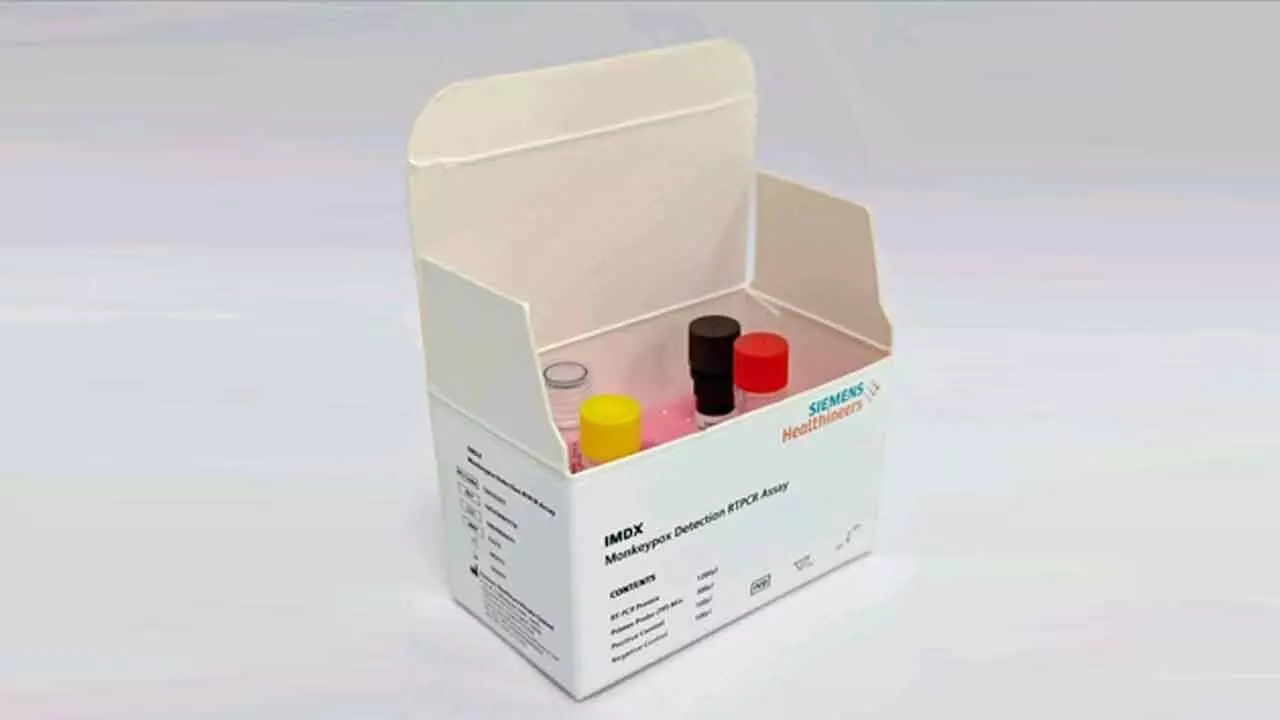CDSCO approves Mpox RT-PCR test
Siemens Healthineers received manufacturing approval from the CDSCO for the IMDX Monkeypox Detection RT-PCR Assay
CDSCO approves Mpox RT-PCR test

The test has also been “clinically validated by ICMR-National Institute of Virology, Pune”. It boasts an impressive 100 per cent sensitivity and specificity
New Delhi: Amid the current outbreak of Mpox, the Central Drugs Standard Control Organization (CDSCO) approved an indigenous RT-PCR test for the deadly infectious disease that delivers results in just 40 minutes, said Siemens Healthineers on Tuesday.
In a statement, Siemens Healthineers said it received manufacturing approval from the CDSCO for the IMDX Monkeypox Detection RT-PCR Assay.
“This is a significant achievement for our "Make in India" initiative and a critical advancement in the fight against the Monkeypox public health emergency,” said the company.
This comes as the World Health Organisation, early this month, declared Mpox as a global health emergency. The deadly infectious disease is currently causing an outbreak in Africa. It is majorly driven by the more virulent and deadly Clade Ib. Outside Africa, Clade Ib has spread to Sweden and Thailand, where 1 case each has been reported so far.
The novel test can produce results “in just 40 minutes, significantly faster than traditional methods (which take 1-2 hours)”, the company said. This helps reduce the turnaround time for reporting, leading to quicker responses.
The test has also been “clinically validated by ICMR-National Institute of Virology, Pune”. It boasts an impressive 100 per cent sensitivity and specificity.
“IMDX Monkeypox RTPCR Assay kits adhere to Indian statutory guidelines and comply with the highest global standards,” the company said.
“The urgency for precise and accurate diagnostics couldn't be more crucial than now,” said Hariharan Subramanian, Managing Director, Siemens Healthcare. “By providing India with advanced assay kits tailored to combat Monkeypox, we are taking a proactive stance in battling this disease and prioritising prompt and precise detection that can truly make a difference in saving lives,” he added.

